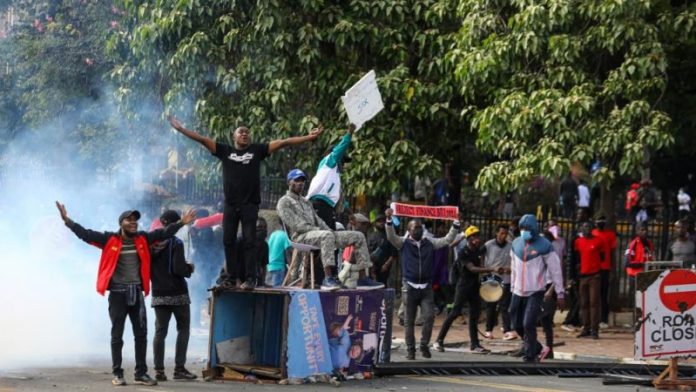A state of emergency has been declared in Kenya amid anti-government protests on Tuesday night, according to a decree by Chief Defence Secretary Aden Bare Duale published in Kenyan media.
The country’s defence forces have been urgently deployed to support law enforcers due to the security crisis and the destruction of infrastructure by protesters.
Kenyan President William Ruto addressed the nation and said he is ready to engage in dialogue with the protesters but will do so solely according to the constitution.
He added that all security forces in the country have been mobilised to counter the protests. The president said:
“The military is deployed to protect your property so that the citizens of Kenya can go to bed peacefully.”
He emphasised that the peaceful protests have turned into hooliganism and all those responsible will be brought to justice.
People demanding the president’s resignation began arriving at the city’s business centre, where the administrative buildings are located, from Tuesday morning. Protesters stormed the parliament building. Members of Kenya’s legislature were forced to leave their workplaces through underground tunnels, and a fire broke out.
Later, the Nairobi City Council building caught fire. Internet outages were recorded, affecting neighbouring states. Police used tear gas and rubber bullets to disperse demonstrators, and some reports say live ammunition. At least 10 people were killed and at least 50 injured in the protests.
Taxes are to blame
A new wave of protests in Kenya began in mid-June and is linked to the Cabinet’s plans to raise taxes on a number of goods and services. In particular, the government was going to introduce a 16 per cent value-added tax on the purchase of bread, transportation of sugar, use of financial and mobile services and transactions with foreign currency. The authorities also planned to introduce an excise tax on vegetable oil and a 2.5 per cent tax on motor vehicles.
